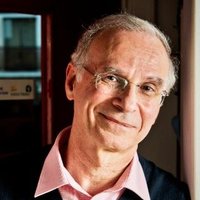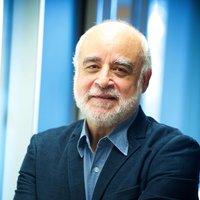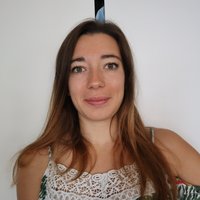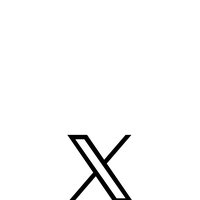Innate Immunity
- Duration: 9 weeks
- Effort: 32 hours
- Pace: ~3h30/week
- Languages: English and french
What you will learn
At the end of this course, you will be able to:
- Define the cellular and molecular players of innate immunity,
- Describe the mechanisms that lead to the elimination of pathogens
- Explain the strategies of the pathogens against the innate immune system
- Discuss the influence of genetic and microbiota on innate immune system
- Present its links with central nervous system and adaptive immunity
Description
Innate immunity acts as a first line of defense and can destroy invading microorganisms and trigger inflammation that contributes to blocking their assault, days before the action of adaptive immunity. While adative immunity was the major focus of researchers in the XXth century, the sensing of the exogenous or endogenous dangers signals was recently described, as well of the action of numerous cells. This MOOC describes the players and the whole orchestra involved in innate immunity against pathogens.
Format
The MOOC is organized into 6 chapters. Each chapter has 1 to 8 sessions. In each session, you will find an 8 to 15 minute video and a multiple choice question test to help you check your understanding. There are 2 to 16 multiple choice questions at the end of each chapter depending on the number of sessions and a certification exam.
The videos are in English, with English and French subtitles.
Want to stay informed? Follow us on LinkedIn, X- Twitter and YouTube to discover all our events.
Prerequisites
A good scientific level is recommended to follow this MOOC (Bachelor in life sciences studies).
This MOOC targets people with a medical or scientific training background who are interested in all aspects of innate immunity: medical students, scientific Master II and PhD students (Immunology, Bacteriology, Parasitology, Virology…), post-doc, physicians, pharmacists, veterinarians, and all scientists working on bacteria, viruses, fungi and parasites, interested to learn more about the defense mechanism of the host against their favored bug.
Assessment and certification
To follow this course, you can choose between two options:
- The Discovery Course gives access to videos, quizzes and discussions in the forum. No certificate is issued for this course. Registration is free.
- The Qualifying Course leads to a certificate. In addition to the activities of the Discovery Course, you will have to take a one-hour supervised distance learning exam, consisting of 30 multiple-choice questions (MCQs) and obtaining 18 correct answers. The registration fee for the Qualifying Course is 150€.
Successful completion of the Qualifying Course gives you the opportunity to apply for the Institut Pasteur Online Diploma of Infectious Diseases (DNM2IP), which consists of 5 certificates to Institut Pasteur MOOCs on infectious diseases. To learn more, visit the Institut Pasteur's web page dedicated to this diploma.
To qualifying path, success at this final examination will provide you with a certificate signed by FUN and by Institut Pasteur.
Course plan
- C1.1 : Macrophages // Jean-Marc Cavaillon
C1.2 : Polymorphonuclear Neutrophils // Margarita Hurtado-Nedelec
C1.3 : NK Cells // Daniel Scott-Algara
C1.4 : Invariant Natural Killer T (iNKT) cells: an innate-like T cell population // Maria Leite-de-Moraes
C1.5 : Innate Lymphoid Cells // Gérard Eberl
- C2.1 : gdT lymphocytes : what are they and how do they respond to pathogens? // Julie Déchanet-Merville
C2.2 : Th17 cells // Pierre Miossec
C2.3 : RegulatoryT cells // Laurence Weiss
C2.4 : Dendritic cells // Anne Hosmalin
C2.5 : Mast cells: Critical Regulators of Immunity to Pathogens and Toxins // Salah Mecheri
- C3.1 : Pathogen associated molecular patterns // Jean-Marc Cavaillon
C3.2 : DAMPs (alarmins) // Lionel Apetoh
C3.3 : Pattern recognition receptors: toll-likereceptors // Jean-Marc Cavaillon
C3.4 : PRRs: Nod-LikeReceptors (NLR) // Catherine Werts
C3.5 : PRRs: Rig-LikeReceptors (RLR) // Eliane Meurs
- C4.1 : The complement system // Lubka Roumenina
C4.2 : Cytokines // Jean-Marc Cavaillon
C4.3 : Chemokines // Christophe Combadiere
C4.4 : Antimicrobial Peptides // Maria Luisa Mangoni
- 5.1 : Anti-infectious role of cytokines // Jean-Marc Cavaillon
5.2 : Innate immunity and bacterial infection // Makram Essafi
5.3 : Toll-like receptors (TLRs) in influenza virus infection // Suki Lee
5.4 : Innate immunity against fungal infection // Oumaïma Ibrahim-Granet
5.5 : Inhibition of innate immunity by vaccinia virus // Geoffrey L Smith
5.6 : Mucosal innate immunity // Jean-Claude Sirard
- 6.1 : Sepsis: an overwhelmed innate immune response // Jean-Marc Cavaillon
6.2 : Influence of microbiota on innate immunity // Ivo G. Boneca
6.3 : Regulation of the immune system by the central and peripheral nervous system // Monique Lafon
6.4 : Links between innate and adaptive immunity // Claude Leclerc
6.5 : Evolutionary Genetics of the Human Innate Immune System // Lluis Quintana-Murci
6.6 : Trained innate immunity // Jessica Quintin
6.7 : Parameters influencing the immune response // Jean-Marc Cavaillon
Course team
Jean-Marc Cavaillon
Categories
Daniel Scott-Algara
Categories
Ségolène Gracias
Categories
Organizations
License
License for the course content

Attribution-NonCommercial-NoDerivatives
You are free to:
- Share — copy and redistribute the material in any medium or format
Under the following terms:
- Attribution — You must give appropriate credit, provide a link to the license, and indicate if changes were made. You may do so in any reasonable manner, but not in any way that suggests the licensor endorses you or your use.
- NonCommercial — You may not use the material for commercial purposes.
- NoDerivatives — If you remix, transform, or build upon the material, you may not distribute the modified material.
License for the content created by course participants

Attribution-NonCommercial-NoDerivatives
You are free to:
- Share — copy and redistribute the material in any medium or format
Under the following terms:
- Attribution — You must give appropriate credit, provide a link to the license, and indicate if changes were made. You may do so in any reasonable manner, but not in any way that suggests the licensor endorses you or your use.
- NonCommercial — You may not use the material for commercial purposes.
- NoDerivatives — If you remix, transform, or build upon the material, you may not distribute the modified material.






